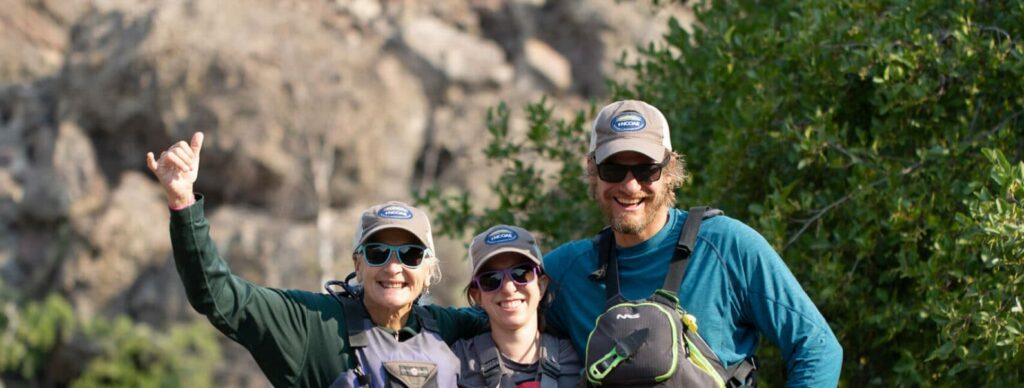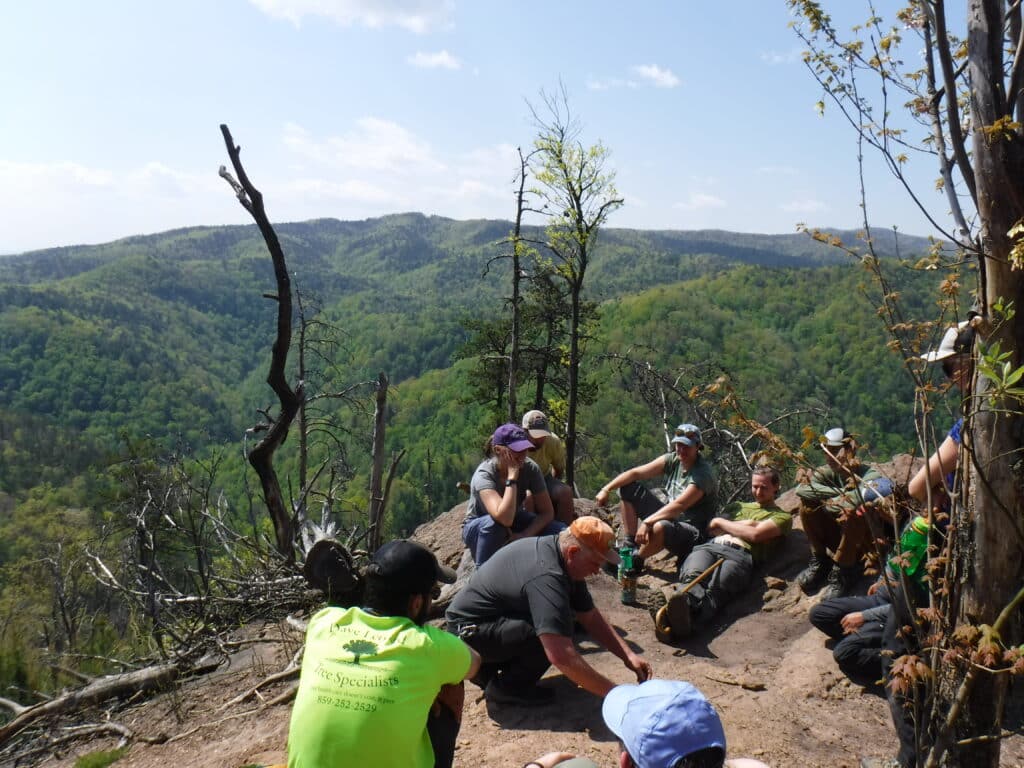Backcountry Guide . . . Outdoor Educator . . . What’s the Difference?
Outdoor EducationIf you’re considering a career in the field of outdoor education and adventure programming that involves leading groups through remote wilderness areas, your career path will come to a fork in the road where you will face an important choice: Do you want to become a backcountry guide or an outdoor educator?

At first glance, these two roles may appear to be too similar to matter, but they serve distinct purposes. While both require expertise in risk management, their focus and approach differ considerably. In general, the differences boil down to the following:
- A backcountry guide is primarily responsible for leading groups safely through remote, rugged environments, with a focus on navigation, logistics, health, and safety.
- An outdoor educator or field instructor does everything a backcountry guide does but with the added responsibilities of teaching wilderness skills, fostering environmental stewardship, and creating opportunities for individual and group personal growth and learning.
In this post, we explore the key similarities and differences between these two roles and what each brings to the outdoor experience.
Recognizing the Similarities
Backcountry guides and outdoor educators (field instructors) are more alike than they are similar. They both have a passion for nature and human-powered outdoor recreation and adventure, and they both share their technical outdoor knowledge and skills freely with others. More specifically, backcountry guides and outdoor educators share the following qualities: (more…)
Outdoor Industry Jobs Require Personal Experience and Certifications
Outdoor Educator TrainingProfessional development — learning that allows you to earn or maintain professional credentials — is key to career planning, especially when it comes to considering a career in the outdoor adventure and education industry. Much more than participating in a bunch of classes, our sector of the outdoor industry looks favorably on applicants with wilderness medicine training and certification, skills training and certification, and hands-on guiding and expedition leadership experience.
Truth is, we here at NCOAE found that operating an adventure education company during a health pandemic was challenging. And staffing our AEE-accredited organization with highly experienced instructors became increasingly difficult but not impossible.

Like other industries, we suffered a staffing shortage, and yes, some of our existing staff left to pursue other pathways. But what we’ve noticed lately is a lack of experience from some people who thought working in the outdoors would — quite literally — be a walk in the park.
Many of these would-be outdoor educators and guides decided that sitting on a couch while looking at photos and films of wilderness expeditions was a suitable alternative for actually going out and experiencing the outdoors.
This potential pool of applicants backed out and went the way of the “Instagram Adventurer” or the “Armchair Explorer.” And in talking with our colleagues across our sector of the outdoor industry, we’re not alone in seeing this trend. Nearly all outdoor adventure and education organizations are taking pause and evaluating the future of trainings, staff recruitment, and what it means to be qualified to head out into “wild places.”
Regardless of what other organizations choose to do about their staffing challenges, NCOAE will not budge on what is required of our field instructor and outdoor educator candidates. Hands-on experience coupled with recognized industry certifications still matter and always will.
If you’re interested in a seasonal or full-time job in outdoor education, here are my recommendations on how to proceed. (more…)
TALK TO US
Have any further questions about our courses, what you’ll learn, or what else to expect? Contact us, we’re here to help!